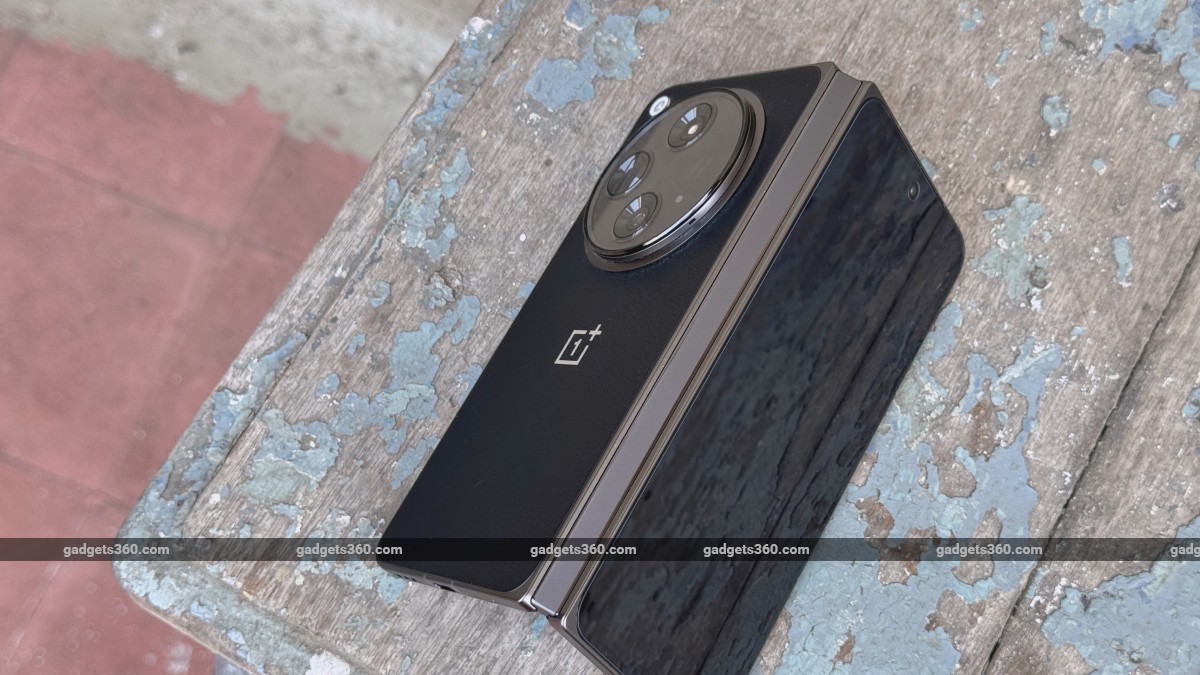
Smartphone technology moves at a blistering pace, at least, on the Android side of things. Folding smartphones has been out for several years, but Samsung has been the face of it in India even though brands like Motorola, Oppo, Vivo, and Xiaomi have also been experimenting with this category. It’s only over the past two years that we have started seeing some of the Chinese clamshell foldables getting launched in India. This is mainly because Samsung has been the only smartphone brand to bring every single foldable model it announced globally, to India.
Another smartphone brand which has been making headway into the premium segment for a while now is OnePlus. The Chinese smartphone maker has time and again proved that it can offer immense value with its products, but has always shied away from the ultra-premium (Rs. 80,000 onwards) smartphone segment. So, what happens when a brand as competitive as OnePlus comes up with a foldable? I’ve been using the OnePlus Open for over a week and here’s why I think it’s a solid rival to Samsung in this segment in India.
![]()
The OnePlus Open is quite skinny and light
The OnePlus Open sure looks the part and makes a solid first impression when you hold it. I received the Voyager Black version with a faux-leather textured back and a slate-grey matte finished frame which instantly reminded me of retro-looking, premium compact cameras. The large, cookie-sized camera protrusion around the back (which is almost as thick as the phone when unfolded) is a proper indicator that OnePlus is serious about this foldable’s cameras. And if that’s not enough, there’s a Hasselblad ‘H’ logo branded onto the raised camera module to reiterate its seriousness on the same.
The overall design is quite modern and minimalistic even though this version (with the leather back) gives out some retro feels. The bezel around the outer display is quite thin and the same can be said about the inner folding display. Both displays have embedded hole-punch selfie cameras which are visible and not hidden from view like on Samsung’s Galaxy Z Fold 5.
![]()
The protruding camera bump adds a couple of millimetres to the back panel
It’s also quite thin and light. When folded, the OnePlus Open is 11.9mm thick (excluding the camera bump) and when unfolded, it’s quite thin at just 5.9mm. Both of these measurements are downright impressive for a full-size foldable. It’s also quite light with the Voyager Black version weighing just 239g. Apple’s iPhone 15 Pro Max, which is a lot lighter this year and far simpler in terms of engineering, weighs 221g. In the foldables space, Samsung’s recently launched Galaxy Z Fold 5 weighs over a quarter of a kilo (253g) and felt far heavier and chubbier when I used it. Indeed, it seems like OnePlus is setting some new standards and raising the bar when it comes to foldable smartphone design.
![]()
The third speaker is basically the receiver speaker located on the left-half of the foldable
There are three speakers on the phone, which seems like an odd choice, but OnePlus claims it offers better sound with them. The fingerprint reader sits inside the power button, and there’s also the iconic Alert Slider switch, which has been available on OnePlus’ premium smartphones. It seems to have brought down this foldable’s rating to an IPX4, but it’s not really a ‘OnePlus smartphone’ if there’s no Alert slider.
OnePlus seems to have gone to great lengths to match its two displays in terms of colours and capabilities, so that users have the same experience when using either. There’s a 6.31-inch 2K, 20:9 aspect ratio outer display with a 120Hz refresh rate. This results in an almost 1:1 aspect ratio main folding 2K display which measures 7.82-inches across and also offers a 120Hz refresh rate. Both AMOLED displays pack in OnePlus’ ProXDR technology along with LTPO 3.0 and offer a 240Hz touch sampling rate.
![]()
The outer display seems wide enough for comfortable regular use
The phone packs Qualcomm’s Snapdragon 8 Gen 2 SoC, which is also available on the Samsung Galaxy Z Fold 5 (Review). However, there’s a hefty 16GB of LPDDR5X RAM (with up to 12GB of RAM expansion) and 512GB of UFS 4.0 storage. While all of this is what is expected from a top-end premium foldable, you have to remember that we are just a few days away from the announcement of the next generation of this SoC, which should be the Snapdragon 8 Gen 3 and it will feature a different architecture and better efficiency as well. Regardless, the Qualcomm Snapdragon 8 Gen 2 is no slouch as we have seen on the OnePlus 11 5G in our review.
As one can tell from the design of this foldable, it is focussed on the camera experience, which is unlike any other globally announced foldable we have seen in the past. The primary camera is an interesting Sony LYT-T808 sensor with a 48-megapixel resolution (with OIS) and promises to bring in more light given its newer technology. The dual-layer transistor pixel technology (or pixel stacked) sensor allows for it to be compact enough to fit into the slim body, but OnePlus also claims that it offers equally impressive performance, which I will test out in the full review.
![]()
The OnePlus Open is well-equipped in the camera department
The second camera is also equally impressive on paper with a OmniVision IV64B with 3X optical zoom range, with OnePlus claiming up to 6X lossless zoom and a maximum range of up to 120X. Like the primary camera this one too packs OIS. Lastly, there’s the ultra-wide camera with a Sony IMX581 sensor with a 48-megapixel resolution and a 114-degree field of view. Since it has autofocus you do end up with a solid macro capability as well, given its larger than usual resolution. There are two selfie cameras both of which are of the fixed-focus variety, and offer 20-megapixel and 32-megapixel resolution.
The device is powered by a 4,805mAh dual-cell battery which can be charged at 67W. Charging is wired only. And the omission of wireless charging is probably what resulted in such a slim design. As for software, there’s OxygenOS 13.2, which is a bit odd as I kind of expected it to run Android 14 out of the box.
![]()
The main folding display has an almost 1:1 squarish aspect ratio
Android 14-based software will reportedly be made available at a later date. OnePlus has a few tricks up its sleeve with OxygenOS as well like a cool Recents Folder in the taskbar which lets you copy and paste things around and between apps like a desktop. There’s also a feature called Open Canvas which lets one run multiple apps at a time, but more on that in the review.
OnePlus is new to the foldables space even though this product has been brought together with help from Oppo. This kind of helps OnePlus start off on the right foot when competing with a brand like Samsung in a very niche but quickly growing market segment. So far, everything sure looks impressive. OnePlus has managed to make its foldable thinner and lighter, and it even packs in an impressive set of cameras on paper, but it has cut a few corners to get there. There’s no wireless charging (for a premium smartphone), no stylus support and it’s powered by, what will shortly be, not be the latest processor in just a few short months.
OnePlus has ensured that its foldable is clearly a OnePlus device, but will these missing features impact its performance and rank it lower against the existing competition? There’s also the brand’s positioning to keep in mind. OnePlus, until now, has never sold an ultra-premium device in both India and the global market. Find out about all of this and more in our detailed review, coming soon.



